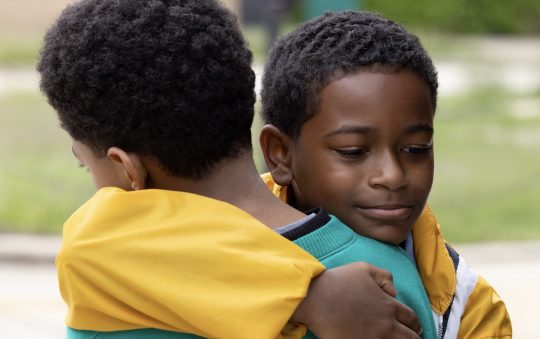
Wendy Greuel, L.A. City Controller
Seeing palm trees on fire. Looking out my office window and watching a car being overturned as the very same image was being broadcast live on my TV. Watching the smoke rising from City Hall. Driving home at 3:00 a.m. on deserted freeways to find National Guard soldiers camped on the streets of the San Fernando Valley. Seeing buildings I had worked to help establish in struggling neighborhoods burned to rubble.
Those are just some of the memories I have of the crisis Los Angeles survived 20 years ago this week in the aftermath of the Rodney King verdict.
In talking with Angelenos as the anniversary approaches, I hear many similar stories. The stark reality check of how deep the level of economic and educational injustice was-even among people who knew that inequities did exist. Recollections of what was happening could not reflect the real Los Angeles–it was one of the saddest times of our lives.
I was 31 at the time. As a deputy to Mayor Tom Bradley, I focused on homelessness, jobs and economic development, working with different neighborhoods and communities including South Central and Koreatown. Working with people from all over the city had reinforced my belief that despite our many differences, we were one city–one Los Angeles.
I was on my way to a community meeting at First AME Church, a meeting to help provide a reasoned and unified response to the Rodney King verdict. Then the chaos began. Radio reports warned drivers not to get out of their cars. The First AME meeting was disbanding. I turned my car around and headed to City Hall, where my colleagues and I began the process of triage–the first of many long nights figuring out what could be done to stop the violence, stabilize the city, and rebuild the devastated neighborhoods.
Here’s where some other memories of that time come into view.
Bringing community leaders together, seeing them wary at first but then coming to a greater understanding of the root causes of the unrest and of the common interests and hopes shared by everybody in the room. Seizing the window of opportunity and reaching out to the corporate community, getting them to take a new look at investments they could make in Los Angeles. Establishing important charter reforms that made the way we police our city better.
In talking with Angelenos about the turmoil of that time, there is a palpable sense of optimism. A hope that maybe we’ve talked enough and learned enough that even when facing charged and challenging situations in the future, we can avoid the kind of physical and social conflagration that we faced in 1992.
Much rebuilding and reconciliation has occurred. I saw that first hand as Mayor Bradley made rebuilding the centerpiece of our remaining time in the Mayor’s office. I saw it at HUD with the partnership the Clinton Administration offered damaged areas, and with legislation to boost enterprise zones and empowerment zones. And I saw it working with business leaders who had become acutely more aware of their responsibility to engage in our greater community.
We’ve had great community-based organizations rise out of the riots, like Korean Churches for Community Development and the Community Coalition. These organizations have grown to become important sources for vital ongoing services like job training, child-care, housing assistance and education.
The charter change I noted has indeed led to great improvement in the relationship between the police and the community. There have been other problems along the way, certainly, but substantial progress has been made in how LAPD reaches out to and communicates with all the communities in our city.
Twenty years later though, it’s also clear we still have work to do.
Unemployment is still too high-realistically 40% in some communities.
Some parts of Los Angeles have the highest proportion of under-educated adults of any major metropolitan area in the country.
While we have some of the finest institutions of higher education in the world, for kids in some neighborhoods they seem so out of reach they might as well be viewed from the Griffith Park Observatory.
The housing crash, the great recession and predatory practices by irresponsible corporations have increased economic inequality, squeezing the middle class and holding back those trying desperately to make it into the middle class.
That’s why when I meet with people from all around the city I tell them we have to build and repair our infrastructure to create good jobs and sharpen our economic competitiveness. That we have to create effective schools that provide opportunity for students in every neighborhood. And that we have to stop foreclosures that hurt families and discourage investment in communities.
When I looked out my window of City Hall that first night, I didn’t know how long the rebuilding process would last, or how long it would take for our city to get back to normal. But I knew I had to be a part of that process.
Now, twenty years later, looking out another city hall window, I know it is a never-ending process with constant challenges.
Bridging economic, educational and social divides takes an ongoing commitment. Healing and understanding don’t come with a “best by” date. And we must always be moving forward, always working to not just to get back to normal, but to be even greater.
And twenty years later I still believe we really are one Los Angeles.
Wendy Greuel is Los Angeles City Controller.






